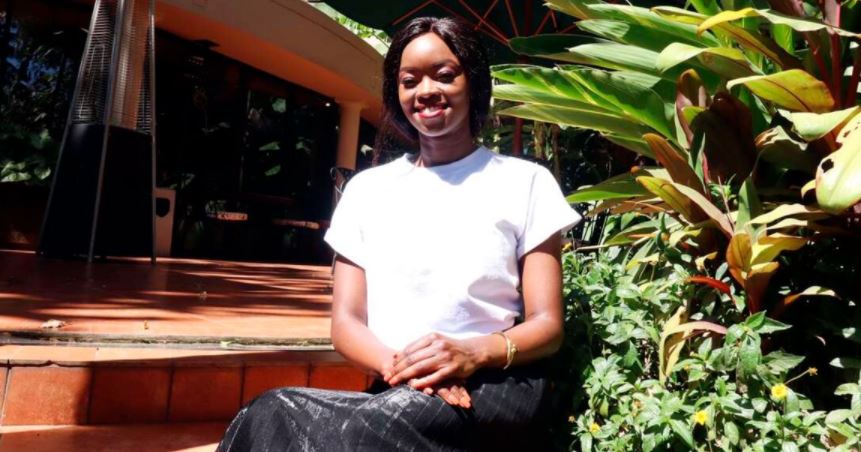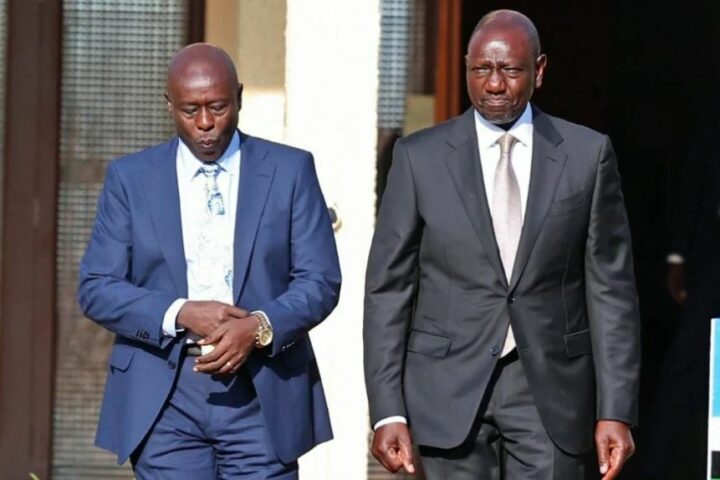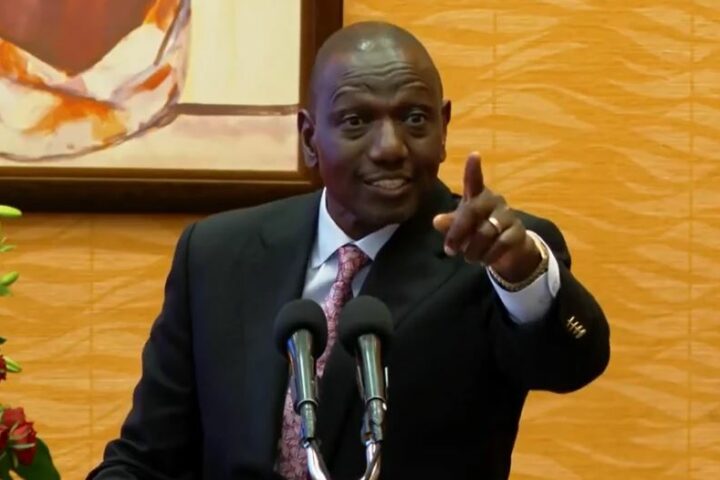
The 37-year-old mother of one is also an Advocate of the High Court of Kenya with Bachelors and Postgraduate degree in law. Ochola also holds a Master’s degree in International Studies.
She is also a 2018 Obama Foundation Leader and was voted by her peers as one of the 100 Most Influential Young Africans in 2018.
Sandra sat down for an interview with Jackson Biko for the Business Daily and below are some of the excerpts.
What’s the most common question people ask you when they find out you work for the President?
They ask me if I see him frequently. Some want me to pass pressing messages to him. I then have to explain that it’s a civil service job like any other.
So, do you get to see him?
When we’re out for work and I understand the protocols around that. So unless there’s something that gets me close to him, I can’t say I have that access to him.
So if he saw you seated here would he go like, hey Sandra, how’s the going?
[Laughs] No. I don’t think so. He wouldn’t. I haven’t gotten the privilege of sitting with him one-on-one.
What notions did you have before you started working at State House that have completely been dispelled or challenged?
One is the first question you asked. [Chuckles] Then there is an assumption that being a speech-writer you will have unlimited access to him as it happens in the US, for instance.
I talked to Barack Obama’s former speechwriter and how he had an opportunity to sit down with him and go over the draft speech bit by bit. It’s different on our end and for a good reason. Bureaucracy is good in its way. The speech I get to write passes through a good number of hands before it gets to the president.
I think at the end of the day, it’s the pride of knowing that you did work for him and he got to read what you helped put together.
So what’s the process of speech writing? Are you given a brief and then you sit down and bring it to life?
Well, let me say, the whole purpose of coming up with the speech is to ensure the president’s message gets out to the public. And by that, you have to reflect his ideals and ideas as the communicator. And of course, then it has to be inspirational and visionary. You also get to capture his aspirations, while reading the mood of the country. It’s ideally a team effort.
Sometimes as a newspaper writer, you might write something but when you see it in the paper you think, ‘wait a minute, what happened? They deleted my favourite sentence!’ Does that happen to you?
Sometimes. [Laughs] And that’s why I mentioned that the speech has to pass through several hands. And also it’s the realisation that you don’t have the monopoly of ideas and writing. There are certain things you overlook when writing and that the inner circle finds very important to be included. Therefore, they do a little bit of editing, but not so much. I’d say the few that I’ve written, then I could go word for word that they were used.
Is it very hard to do interviews like this when your card reads “The Executive Office of the President” because, well, you represent the office and the man, and what you say might reflect on the office and the man?
It is very hard. I used to do a lot of media appearances during the political season, which of course now I can’t do anymore because the assumption is that you’re speaking on behalf of the Office of the President. So I can’t do any media appearances. In fact please don’t put me in any trouble. [Smiles]
Of course not. What part of your life do you feel that needs development?
My social life. [Chuckles]. Oh yes, [Sighs] I realised quite late that I have been very work-oriented and looking back, I got a lot of my satisfaction from what I did, where I worked. But I think as time goes by, you realise that it’s important for you to be a wholesome individual. So I’m building on that. I’m networking more, meeting friends, making more friends. I’m exploring more, going to new places, meeting new people, reaching out to people more. And just trying out new things that before then I felt were taking too much time away from.
So what are you struggling with currently as a woman?
[Pause] Confidence in mothering. I’ve got a daughter, she’s turning 13. I got her when I was 24 years old and quickly realised that there is no manual in parenting. Coming from a strict background, I feel that I wanted to be less strict, to be her friend but then as she grows older I realise that you cannot be your child’s friend all the time. You have to balance between being a mother and being a friend.
She is trying to find her own identity and once in a while we clash and I have to take a back step. I have realised that she’s her own person, carving her path. My child’s father passed on in 2019 and I’ve had to fill that gap the best I can. Understandably there is no substitute for a male figure in a girl’s life and I’m glad that the men in my family have stepped in to provide that.
What do you fear now, for yourself?
Death. [Chuckles] I’m only 37, there’s so much I feel I still want to accomplish; family success, personal success, the success of my little girl, that I wouldn’t want anything that would prevent me from experiencing that or contributing towards that.
If you had to do something that would not attract any repercussion or questioning, something you’d get away with, what would that be?
I’d print lots of money. [Laughter]. And I’d just keep it in my room and splurge it on things like jewellery. I try to be a luxurious girl. [Laughs]. I’d also travel a lot. I generally love beautiful things, I love comfort if that counts for luxury.
If you’re made a president for 24 hours, what would you do?
[Pause) Apart from enjoying the chase cars, which I think would be very cool [laughs], I’d demand 24 hours of kindness and volunteering. On that day we will be required to do something good or something noble about someone else without expecting anything in return. I think as a society we have become too inward-looking that we often fail to connect when it matters.






